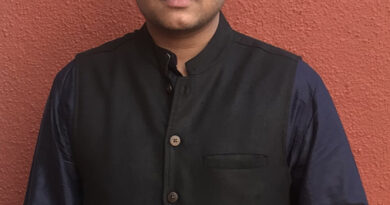Fair and unfair: On actor Suriya and contempt
It is a matter of relief that the Madras High Court has decided not to pursue the ill-conceived attempt to initiate action against film actor Suriya for contempt of court. In a detailed order, the Court has rightly noted that “it is not the job of a constitutional court to use a sledgehammer for avoidance of something which can be perceived to be not capable of even being propped up as contempt, much less debated to the level of criminal contempt”. In the course of a statement against the National Eligibility-cum-Entrance Test (NEET) for medical admissions in the country, the actor had indirectly questioned the propriety of the Supreme Court allowing NEET to be held across the country during the pandemic when the Court itself was holding virtual hearings out of fear of infection. A judge of the High Court had sought to construe the remark as an adverse comment on the judiciary in general and one questioning the devotion and integrity of judges. The observation might have been unwarranted, but it was quite clear from the beginning that it constituted no contempt, inasmuch as it did nothing more than raise the question whether Courts that went virtual in the interest of the safety of judges, lawyers, staff and litigants, could afford to risk the health of thousands of students. Fortunately, the Advocate-General, Vijay Narayan, whose opinion was sought by the Chief Justice of the High Court, Amreshwar Pratap Sahi, declined consent for initiation of criminal contempt proceedings. Agreeing with his opinion, a Bench headed by the Chief Justice, decided not to pursue the matter further.
However, the Court’s 29-page order is not an unmixed blessing. It lays much emphasis on the idea that criticism about the judiciary should be restrained, lest the line of fair comment be crossed. There is a lengthy section on the need for prudence and restraint on exuberance, but such observations would be relevant and apposite only if made in the context of a strident attack on the judiciary. Did the actor’s statement contain such unbridled criticism? There is no effort to parse the offending sentence to see if there was any adverse comment on judges in general, or any aspersions cast on the system of virtual courts. If only the Court had seen it as a comment limited to orders of the Supreme Court, it could have dropped the issue for lack of jurisdiction, as laid down by the apex court in Vitusah Oberoi (2017). In fact, the order itself notes that no court in Tamil Nadu has dealt with the NEET issue. While the advice for restraint is, without doubt, reasonable and well-articulated, its elaborate delineation should not open up the possibility of more such demands for contempt action in the name of deterring unfair criticism. As long as there is no effort to obstruct the course of justice, criticism, whether fair or unfair, does not warrant initiation of contempt proceedings.

